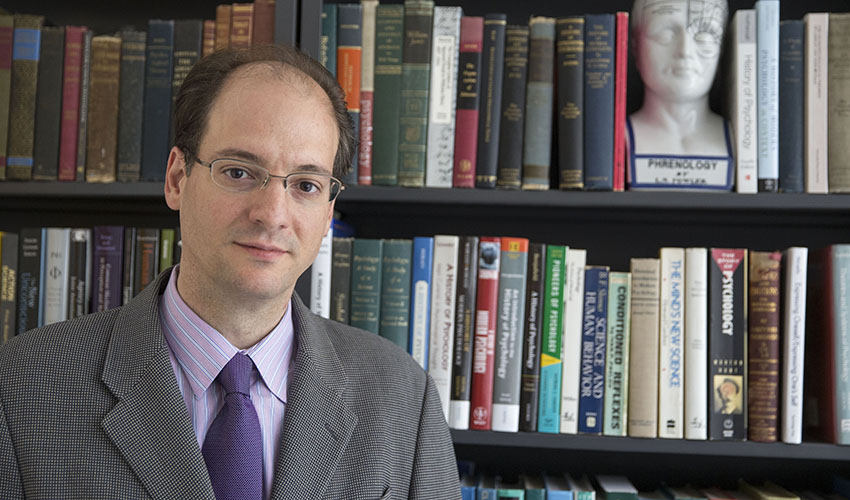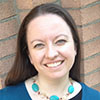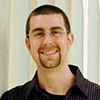Study shows complex ideas can enter consciousness automatically

Assistant Professor of Psychology Ezequiel Morsella's research provides support for "passive frame theory," a potentially groundbreaking idea that suggests consciousness is more of a conduit for information in the brain rather than an active creator of information..
It's difficult to look at pictures of cars shown on a computer and then keep yourself from saying "car" inside your head the next time one shows up on the screen — even when someone tells you to avoid saying it. Now, a new study led by SF State researcher Ezequiel Morsella concludes that this same automatic effect can occur with much more complicated mental manipulations — for instance, transforming "car" to the pig latin "ar-cay" in your head after you've been told to avoid that transformation.
This surprising effect offers further evidence that the contents of our consciousness — the state of being awake and aware of our surroundings — are often generated involuntarily, said Morsella, an assistant professor of psychology. In fact, the study published in the journal Acta Psychologica provides the first demonstration that even a small amount of training can cause unintentional, high-level symbol manipulation.
"Symbol manipulations such as mentally rotating an object in space, rearranging words or musical notes, or performing math operations — these processes have been regarded as being more multifaceted, and as having more moving parts, in a sense, than the very different process of automatic memory retrieval," Morsella explained. "Our study reveals that unintentional, unconscious processes can be more sophisticated than what has been thought before."
In the study, 32 SF State students were taught or reminded how to rearrange words in pig latin (removing the first letter of a word and adding it in front of "ay" at the end of the word). They were then told to not perform this transformation in their heads when prompted with another set of words — but to press the spacebar during the computerized test if they did perform the transformation unintentionally.
The students involuntarily created pig latin words in 43 percent of the word trials they received, "and these people were trying actively to not have the effect occur, so this high-level process is going against the intentions of the subjects in the study," Morsella said.
He and his team of researchers also used the pig latin test on themselves and were surprised to find how often they unintentionally ignored the instruction to not transform the words.
Morsella said the study provides more support for the passive frame theory that he proposed along with his colleagues last year, a potentially groundbreaking idea that suggests consciousness is more of a conduit for information in the brain rather than an active creator of information. The theory has generated a significant amount of attention in academic circles and in the popular media, and Morsella said his team has written a follow-up paper to the study that will be published in an upcoming issue of the journal Behavioral and Brain Sciences.
The pig latin results, he suggested, are further proof that "consciousness is passive, and that its contents are often generated unconsciously. But [consciousness] is necessary," he stressed.
He compared consciousness to an interpreter or a format like the Internet. "If you're arguing with someone over the internet, you need the internet," but it isn't doing any of the arguing or resolving the argument.
"By itself, consciousness, like a window, doesn't actually do that much," he added, "but what it provides for other, more active (and unconscious) systems is essential."
The findings could also be helpful for clinicians looking for ways to treat patients beset by unhealthy obsessive thoughts or ruminations, or compulsions, Morsella noted.
A clinician might work with a patient to help her deal with or "surf" an urge once she becomes aware of it, but, in some cases, the use of such a technique might come too late, Morsella suggested. "What my lab is showing is that, in some cases, you're better off, through some form of re-training, not letting that urge enter consciousness in the first place, because once that urge enters consciousness, it's in a late stage of processing, and it's already very strong."
"Involuntary symbol manipulation (pig latin) from external control: Implications for thought suppression" by Ezequiel Morsella and Hyein Cho (San Francisco State University), Pareezad Zarolia (University of Denver) and Adam Gazzaley (University of California, San Francisco) was published online in April 2016.


